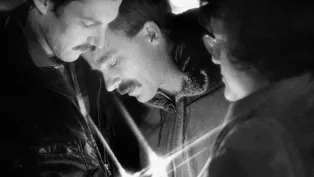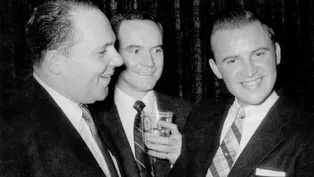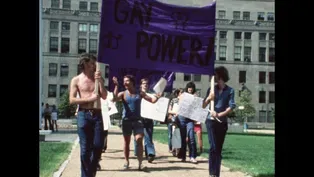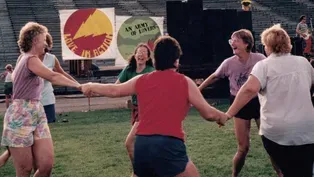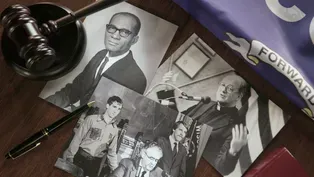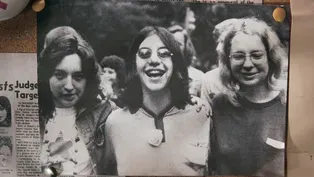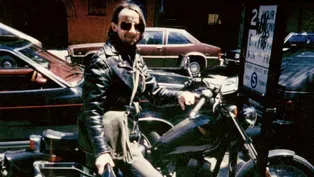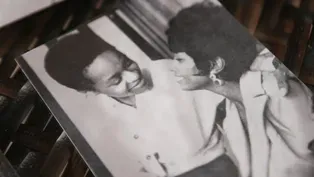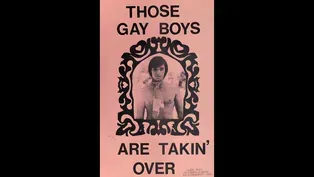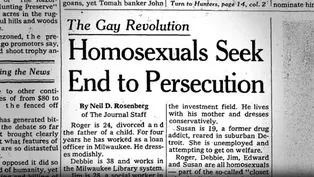Wisconsin Pride
Black Nite Brawl
Clip: Special | 4m 46sVideo has Closed Captions
Years before Stonewall, a Milwaukee bar’s patrons fought back against homophobic attacks.
1969’s Stonewall Uprising in New York City is heralded as the birth of the LGBTQ+ rights movement. But it wasn’t the only, or first, time a group of gay and trans people took a stand to fight against abuse and oppression. In 1961, Josie Carter, described as a “queen of color” rallied fellow patrons of the Black Nite Bar when confronted by a gang of sailors on leave and bent on making trouble.
Problems with Closed Captions? Closed Captioning Feedback
Problems with Closed Captions? Closed Captioning Feedback
Wisconsin Pride is a local public television program presented by PBS Wisconsin
Funding for Wisconsin Pride is provided by Park Bank, SC Johnson, the Greater Milwaukee Foundation, the Evjue Foundation, the charitable arm of the Capital Times, TruStage, the New Harvest Foundation,...
Wisconsin Pride
Black Nite Brawl
Clip: Special | 4m 46sVideo has Closed Captions
1969’s Stonewall Uprising in New York City is heralded as the birth of the LGBTQ+ rights movement. But it wasn’t the only, or first, time a group of gay and trans people took a stand to fight against abuse and oppression. In 1961, Josie Carter, described as a “queen of color” rallied fellow patrons of the Black Nite Bar when confronted by a gang of sailors on leave and bent on making trouble.
Problems with Closed Captions? Closed Captioning Feedback
How to Watch Wisconsin Pride
Wisconsin Pride is available to stream on pbs.org and the free PBS App, available on iPhone, Apple TV, Android TV, Android smartphones, Amazon Fire TV, Amazon Fire Tablet, Roku, Samsung Smart TV, and Vizio.
- In the summer of 1969, in New York City, six days of protests and clashes with law enforcement erupted following a police raid of The Stonewall Inn, a local gay club.
The Stonewall Uprising would become famous as the catalyst for the gay rights movement in America.
But anger had been brewing across the country well before Stonewall became a flash point.
[rumbling skies] - Michail Takach: Eight years before Stonewall, the Black Nite Bar was the scene of the first LGBTQ uprising in Wisconsin history.
[thunder claps] - A rainy August 5, 1961.
After a night out on the town, three sailors found themselves outside the Milwaukee gay bar, The Black Nite.
The servicemen had been sent there on a dare.
When asked to show their ID at the door, they panicked, dragged the bouncer outside, and attacked him.
A nearby bar patron refused to stand by and do nothing.
- Michail Takach: The heroine of The Black Nite was Josie Carter, an African American gender non-conforming queen of color.
- Josie Carter: I'm Josie Carter.
And, oh gosh, look out!
[shrieks warmly] - Michail Takach: Josie ran out there with a beer bottle in each hand and knocked one of the sailors unconscious and hit the other one over the head.
[glass shattering, shouting] They dragged their friends out of there and said they'd be coming back to teach gay people a lesson.
- Bullied as a child, a survivor of sexual violence, Josie Carter refused to be harassed any longer.
- Josie Carter: I have to be me.
If I can't be me, what the hell?
- Michail Takach: Josie really was everyone's best friend.
- For Josie Carter and her friends, The Black Nite Bar was a second home, a place worth fighting for.
- Josie Carter: Just let me live my life, and you live yours.
And we'll get along beautifully.
- She warned the others in the bar about the attack, rallying them to stand their ground.
- Michail Takach: People got really mad because they were like, "We have this one space.
"We have this one space in Milwaukee "we can go and be ourselves "and dress however we want and express however we want.
And now, they're coming in here and harassing us."
And Josie's response was, "We don't run from a fight."
- Josie Carter: I'm not a runner.
I mean, the high heels...
I'm sorry.
I do not run.
- The sailors returned with about a dozen others in reinforcements, but were in for a surprise.
- Michail Takach: The sailors were met by 74 bar patrons who were mad as hell and not taking it anymore.
[angry shouting] - The two sides clashed.
- Michail Takach: The brawl literally destroyed the bar.
All the windows were broken.
All the glass in the bar was broken.
Everything was just destroyed.
[police siren] - The police broke up the fight and arrested the three sailors.
The violence that night drove the headlines.
But a larger message was sent.
- Michail Takach: Other gay people saw news clippings about "The Black Nite Brawl" and said, "Oh, my gosh, there are people like me.
"And they're not putting up with it.
And they are fighting back."
This was a big deal in 1961.
- Beyond a place of refuge, the gay bar became a symbol of liberation, galvanizing a community.
- Víctor Macías-González: There wouldn't be a gay movement without gay bars.
- Michail Takach: The Black Nite was the first in a series of dominoes that fell that really advanced Wisconsin on the national landscape in terms of gay rights, gay protections, and gay awareness.
- But the fight for equality was only just beginning.
And an age of activism would soon follow.
Video has Closed Captions
Clip: Special | 5m 57s | Responding to the AIDS pandemic took political will and new social action led by ACT-UP. (5m 57s)
Video has Closed Captions
Clip: Special | 2m 9s | Gay bars once were the only place you could be gay, and it was still risky. (2m 9s)
Video has Closed Captions
Clip: Special | 2m 19s | Gay Peoples Union nurtured LGBTQ+ life in 1970s Milwaukee. (2m 19s)
Gay Press and Leaping La Crosse News
Video has Closed Captions
Clip: Special | 5m 27s | A diverse gay press united LGBTQ+ people. La Crosse had its own lesbian newsletter. (5m 27s)
Video has Closed Captions
Clip: Special | 11m 6s | Wisconsin led the nation in enacting anti-discrimination laws for gays and lesbians. (11m 6s)
Video has Closed Captions
Clip: Special | 5m 2s | The nation’s first out lesbian candidate for office ran to protest anti-LGB school policy. (5m 2s)
Video has Closed Captions
Clip: Special | 4m 58s | A trans-pioneer from Wauwatosa, WI, Lou Sullivan helped others to live as themselves. (4m 58s)
Video has Closed Captions
Clip: Special | 5m 25s | Milwaukee lesbian couple sought marriage equality in the Seventies. (5m 25s)
Video has Closed Captions
Clip: Special | 2m 37s | The Madison Alliance for Homosexual Equality was Wisconsin’s first LGBTQ+ advocacy group. (2m 37s)
Preview: Special | 30s | Remarkable stories of fighting injustice define a pivotal LGBTQ+ era in Wisconsin. (30s)
Providing Support for PBS.org
Learn Moreabout PBS online sponsorshipSupport for PBS provided by:
Wisconsin Pride is a local public television program presented by PBS Wisconsin
Funding for Wisconsin Pride is provided by Park Bank, SC Johnson, the Greater Milwaukee Foundation, the Evjue Foundation, the charitable arm of the Capital Times, TruStage, the New Harvest Foundation,...
